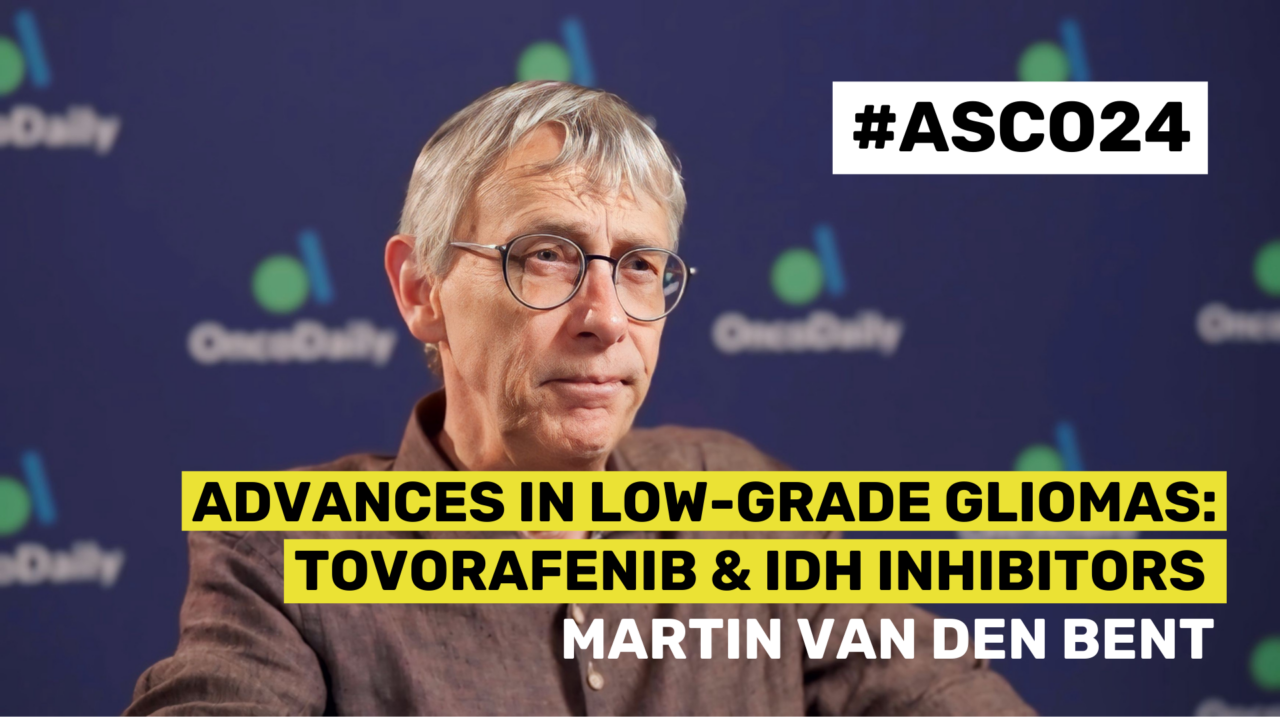The American Society of Clinical Oncology (ASCO) Annual Meeting is one of the largest and most prestigious conferences in the field of oncology. This year, the meeting took place from May 31 to June 4 in Chicago, Illinois. The event gathers oncologists, researchers, and healthcare professionals from around the world to discuss the latest advancements in cancer research, treatment, and patient care. Keynote sessions, research presentations, and panel discussions are typically part of the agenda, providing attendees with valuable insights into emerging trends and innovations in oncology.
This year, OncoDaily was at ASCO 2024 for the first time covering the meeting on-site. We had the pleasure of interviewing researchers who summarized the highlights of their work.
In this video, Professor Martin van den Bent shared insights on ‘State of the Art in Low-Grade Glioma Management: Insights From Isocitrate Dehydrogenase and Beyond‘
Good day to you all. My name is Martin van den Bent. I’m a professor at Neuro-oncology from Rotterdam, Erasmus University.
And on Monday, together with Ingo Mellinghoff from Memorial Sloan-Kettering and Karisa C. Schreck from Johns Hopkins, we will have a session on targeted treatments in low-grade gliomas. We are making slowly advances in treating low-grade gliomas with targeted treatments in neuro-oncology, and that’s good news.
A couple of years ago, it was clear that the combined BRAF-MEK inhibition for BRAF V600E mutated tumors is also active in gliomas, but many of the gliomas have BRAF lesions that are not these typical V600E mutations, but they have a BRAF-KIA fusion, and they do not respond to typical BRAF-MEK inhibition.
Now, we have a second generation of BRAF-II inhibitors, tovorafenib, that show very high response rate in young patients with BRAF-KIA fusions, and that’s excellent news for those young children that suffer from rather devastating diseases, and these treatments are much more active than classical chemotherapy. But there’s also good news for the diffuse adult gliomas with an IDH mutation.
The INDIGO trial, as presented last year by Ingo Mellinghoff, has shown that these Sorafenib, this IDH inhibitor, prolongs progression-free survival from 11 months for the placebo-treated patients to 27 to 28 months for the Sorafenib-treated patients, and that shows that in this patient population, we have a new treatment modality available, and that’s important news.
We know that surgery is active. We know that radiation therapy and chemotherapy is active, but we want to postpone radiation therapy and chemotherapy because of the side effects of that treatment, and now we have a novel Instrumentarium, we have a novel treatment that may help to delay the radiation therapy and the chemotherapy and keep the patients in a longer, good quality of health state, and that’s important news for our patients.
More videos and content from ASCO 2024 on OncoDaily.


